- Learning time
- 10 minutes
- First play time
- 40 minutes
Longboard
Designed by: Reiner Knizia
In Longboard players are shaping their surfboards, trying to establish the best set for the win.
The boards in question are made up of cards numbered 1-8, that you – hopefully – overlap as your board gets bigger. Everyone begins with two cards in front of them, in their supply area. On your turn, you take two actions: any combination of the available three. You can add another board card from the face-down deck to your supply. You can move a card from your supply into your board area, either starting a new board (each board must be cards of the same colour), or increasing the size of an existing one – with the caveat that the number you’re adding must be the same value or higher than the card you’re putting it on top of.
Or finally, you can swap cards from your supply for one in another player’s supply, but the card/s you give must have a higher numeric value than the card you take. When you do this, the card you’ve taken goes dierctly into your board area – cards in board areas can’t be taken by opponents. There are also some wild cards – they follow the same ascending-number rules, but function as any colour.
Each card has a number of stickers (0-3) on it that score points when the game ends, but there are other ways to score points too: each game contains a randomized set of objectives: tallest board, two boards of a colour, most boards and so on – that award bonus points. The game can end either when the deck runs out, or optionally when any player who has at least three or four boards (depending on player count) and a board of at least seven cards chooses to end it, and players add up their points and score objectives…. however! any board made up of less than four cards scores minus points.
The guru's verdict
-
Take That!
Take That!
Although you get cards in return, other players taking what you wanted from your supply can feel a little take-that-y at times.
-
Fidget Factor!
Fidget Factor!
Low. Each decision is meaningful, but nothing so deep as to grind the game to a gritty halt.
-
Brain Burn!
Brain Burn!
Longboards nub, and ultimate appeal, is in the marketplace of available boards from various supplies, and spotting opportunities to undo others whilst helping yourself.
-
Again Again!
Again Again!
The board cards are always randomized and the Objective cards change from game to game.



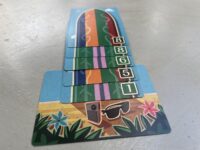
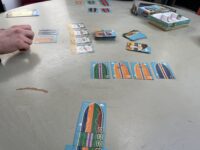
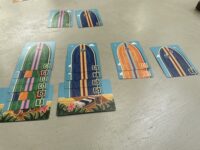
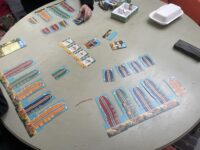


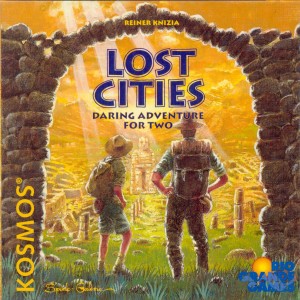
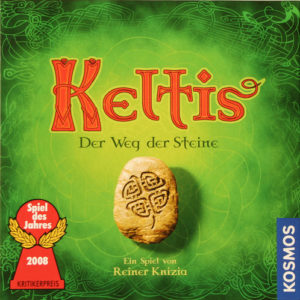
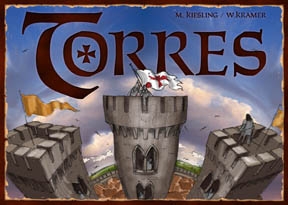

Sam says
A swift little game with enough about it to remain engaging, even if it's not one of the designer's strongest. It's one of those games where the theme is irrelevant; the play is more managing the scoring system itself as opportunities swell and recede like the tide, although in this case your best cards may be swept away by opponents rather than destiny. I don't think it's a classic, but it's fun enough to revisit plenty of times, with shared objectives and the swapping of cards more akin to theft than trade. Decent fun.